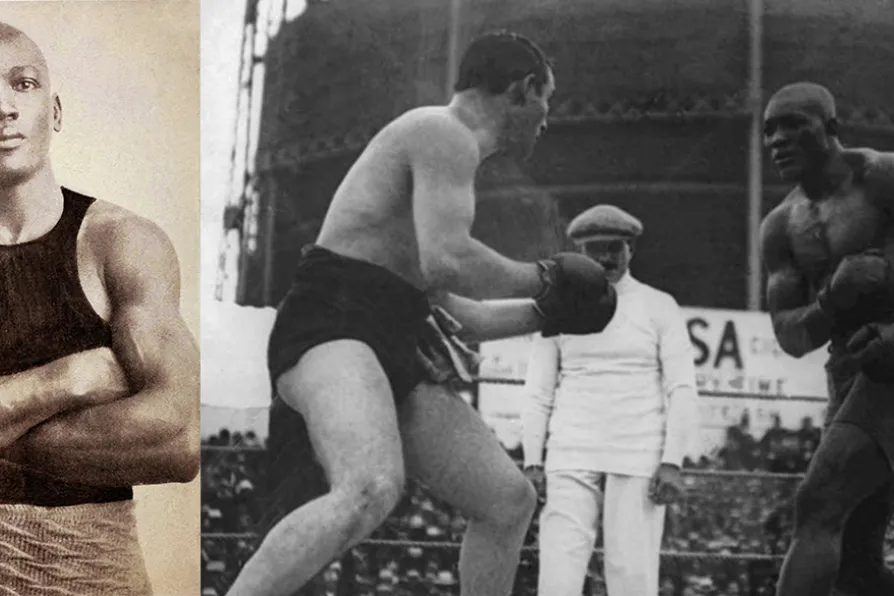
 Jack Johnson in his prime in 1908 (left) and (right) Johnson's fight against Tommy Burns in Sydney the same year in which he won the World Heavyweight title
Jack Johnson in his prime in 1908 (left) and (right) Johnson's fight against Tommy Burns in Sydney the same year in which he won the World Heavyweight title
THE Fourth of July, most everybody knows, is a special date in the US calendar. It was on this day in 1776, near the beginning of the war, that the thirteen original colonies of the United States declared its independence from London and unleashed war against their colonial master.
For the indigenous peoples and African slaves, of course – many of whom sided with the British – the Fourth of July has always held different meaning, one pregnant with revulsion at the despicable hypocrisy of a nation founded by psychopathic racist killers holding itself up as a beacon of freedom and human progress.
One man who experienced this hypocrisy throughout his life was Jack Johnson. After years of being denied the chance to fight for the heavyweight title, he finally did so against Tommy Burns in Australia in 1908.

JOHN WIGHT tells the riveting story of one of the most controversial fights in the history of boxing and how, ultimately, Ali and Liston were controlled by others













